9 Simple Ways of Socializing Dogs With Other Dogs
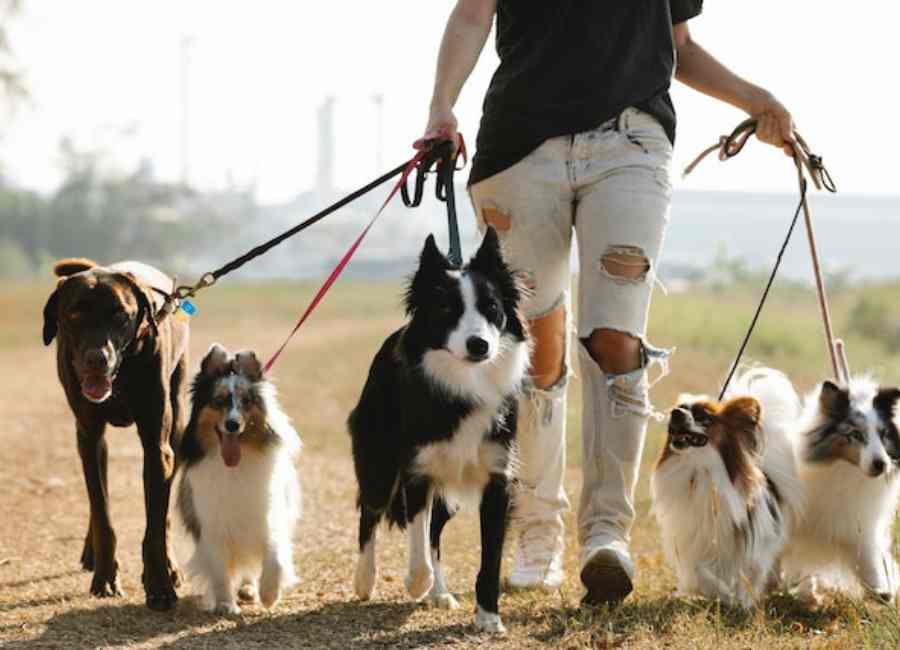
Socializing dogs with other dogs can be challenging, but it’s also an essential part of their development and well-being.
Are you concerned about how your furry friend gets along with other dogs? Well, don’t worry, you’re not alone!
In this blog post, we’ll be sharing some useful tips and insights on how to successfully socialize your dog with other dogs, so stay tuned!
Before we proceed, let’s look at some benefits of socializing dogs with other dogs…
Benefits of Socializing Dogs With Other Dogs
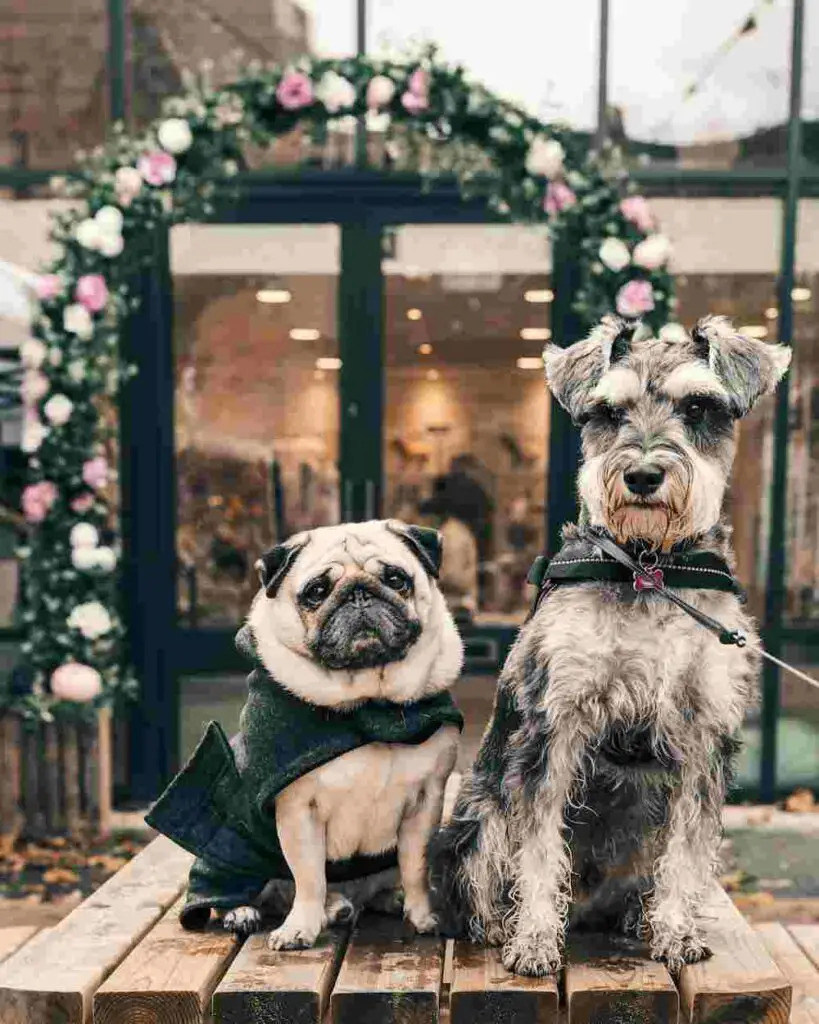
Here are some common benefits of socializing dogs with other dogs:
- Better social skills: Dogs who regularly socialize with other dogs tend to develop better social skills and are more comfortable in the presence of other dogs.
- Improved behavior: Dogs who are socialized with other dogs often exhibit improved behavior, such as less aggressive tendencies and better impulse control.
- Reduced anxiety: Dogs who socialize with other dogs tend to have reduced levels of anxiety and stress.
- Increased exercise: Dogs who socialize with other dogs often play and run more, which can provide them with additional exercise and promote better health.
- Elevated mood: Dogs who socialize with other dogs often have elevated moods and experience more positive emotions.
- Improved communication skills: Dogs who socialize with other dogs develop improved communication skills and are better able to understand and interpret body language and vocalizations.
- Increased confidence: Dogs who socialize with other dogs often have increased confidence and are better able to navigate new situations.
- Better problem-solving abilities: Dogs who socialize with other dogs often develop better problem-solving abilities, as they learn to adapt to unfamiliar situations and challenges.
- Better bonding with their owners: Dogs who socialize with other dogs often have better relationships with their owners, as they are more well-adjusted and less likely to exhibit problematic behaviors.
Ways of Socializing Dogs With Other Dogs

The following are some common ways of socializing dogs with other dogs:
1. Planning a doggy play date with a friendly dog owner
Planning a doggy play date with a friendly neighborhood canine is an excellent way of socializing a dog with other dogs. It helps dogs to develop social skills, builds confidence, and reduces anxiety around other dogs. It also creates a fun and safe environment for dogs to interact with each other and bond.
To plan a doggy play date, start by selecting a dog that is of similar size, age, and temperament to your dog. Approach the dog’s owner and ask if their dog is friendly and would like to participate in a play date. It is imperative to ensure both dogs are up-to-date on their vaccinations and free from any contagious diseases.
Choose a location that is neutral, safe, and fenced, such as a dog park or a backyard. Always supervise the dogs during playtime to ensure they are playing well together and resolve any issues that may arise.
During the play date, monitor the dogs’ behavior and intervene if necessary. Allow them to play and interact with each other for approximately 20–30 minutes and then take a break before allowing them to resume playing. Offer plenty of water and treats for the dogs to keep them hydrated and motivated.
2. Going on group walks or hikes with other pet owners and their dogs
Going on group walks or hikes with other pet owners and their dogs is a great way to socialize a dog with other dogs. This type of activity provides a controlled environment where dogs can meet and interact with one another while being supervised by their owners.
To start, pet owners can reach out to other pet owners in their local area through social media groups or even just around the neighborhood. Scheduling a regular time and location for the group walk or hike can also ensure that there is consistency for the dogs and owners involved.
During the walk or hike, it’s important for all owners to keep their dogs on a leash to prevent any negative interactions or disagreements between the dogs. Owners should also be vigilant in monitoring their dogs’ behavior and body language to ensure that they are comfortable and not feeling threatened or anxious.
It’s also a good idea to bring along some dog treats or toys, as these can be used to reward positive behaviors and provide a fun distraction for the dogs. Overall, group walks and hikes with other pet owners and their dogs can be a fun and effective way to socialize a dog with other dogs and help them feel more comfortable in social situations.
3. Scheduling a doggy swim session at a pool or lake with other dogs
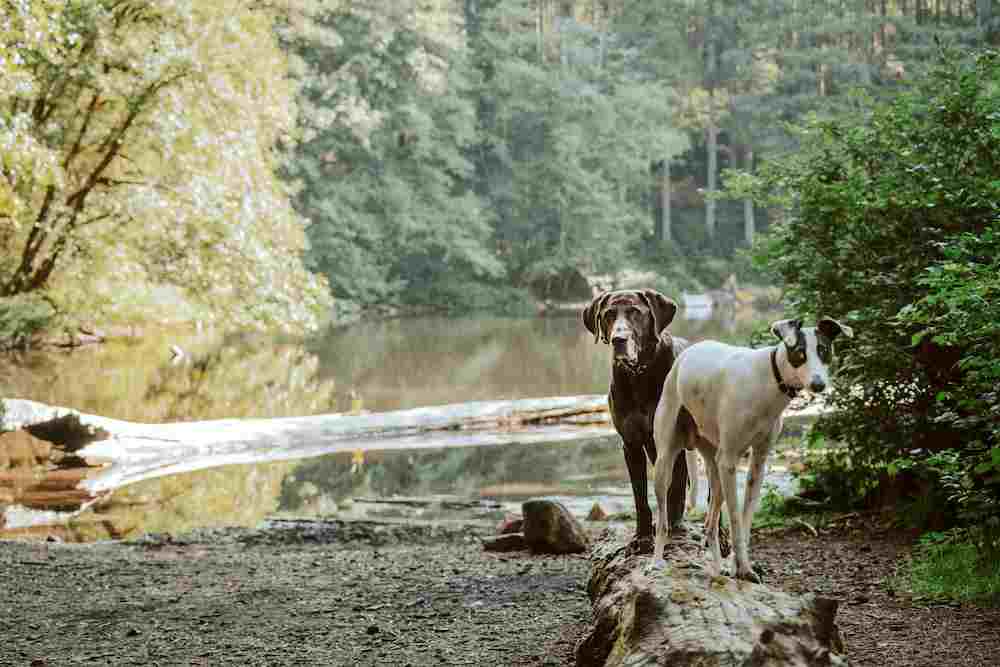
Scheduling a doggy swim session at a pool or lake with other dogs can be a great way to socialize your dog with other dogs. This activity provides a controlled environment for dogs to interact and get to know each other.
To schedule a doggy swim session, start by finding a local pool or lake that allows dogs. Next, reach out to the facility and ask about their policies regarding dog swim sessions. Some facilities may require proof of vaccinations or other health requirements.
Once you have found a facility and its policies allow for doggy swim sessions, you can invite other dog owners to join in on the fun. You can do this by posting about the event on social media or networking with other local dog owners.
During the doggy swim session, be sure to keep an eye on your dog’s behavior and interactions with other dogs. Intervene if necessary to prevent any negative interactions or behaviors.
4. Taking your dog on an outing to a dog-friendly beach or park
One common way of socializing your dog is to take them to a dog-friendly beach or park, where they can interact with other dogs in a safe and controlled environment.
Preparing for the Outing
Before taking your dog to a dog park or beach, it is important to ensure they are comfortable and well-behaved around other dogs. It is also recommended to check with the park or beach management to ensure dogs are allowed and to follow any specific rules or etiquette regarding dog behavior.
Supervising the Interaction
Once at the park or beach, it is important to supervise your dog’s interactions with other dogs closely. This will help to ensure that both your dog and the other dogs are friendly and comfortable with each other. It also allows you to step in if any aggressive behavior occurs or if your dog becomes overwhelmed or over-excited.
Providing Positive Reinforcement
Be sure to praise and reward your dog for positive behavior and appropriate interactions with other dogs. This will encourage your dog to continue to socialize with other dogs and foster positive relationships with them.
5. Volunteering at a dog shelter or rescue organization
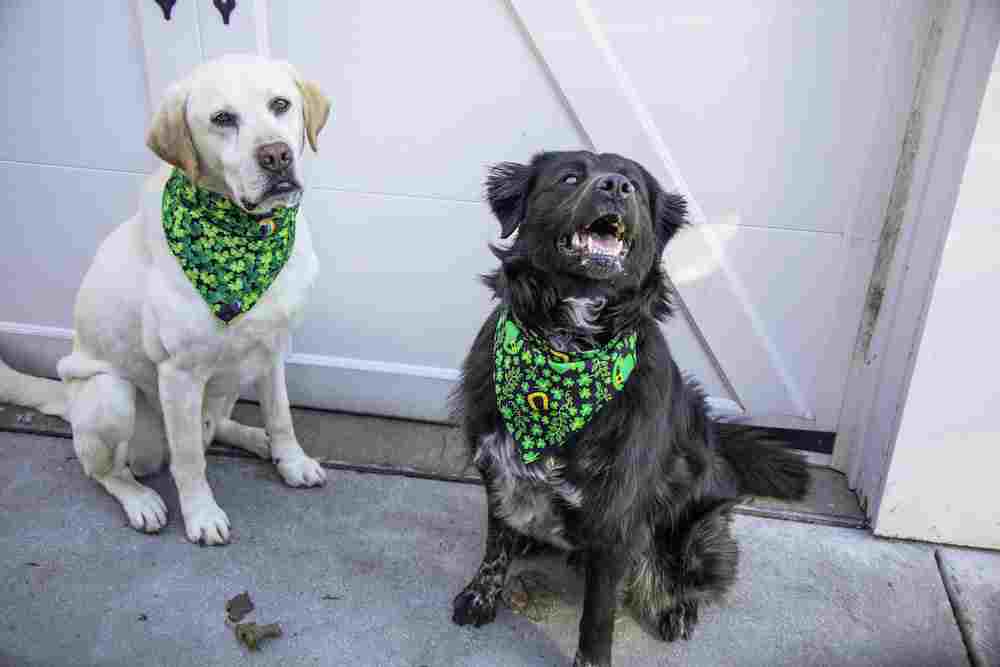
Volunteering at a dog shelter or rescue organization is a great way for your pup to interact with other canines and socialize with them. In these settings, there are usually other dogs that your pup can play and interact with during playtime. This can help your pup develop good social skills and positive behavior around other dogs.
Here are some ways to make the most of your volunteer experience:
- Contact your local dog shelter or rescue organization: Find out if they have a puppy socialization program or playtime for dogs. Ask about their policies on bringing your own dog and any requirements they may have for your dog’s participation.
- Start with short play sessions: It’s important to start with short play sessions to observe how your dog reacts to the other dogs. Gradually increase the length of play sessions as your dog becomes more comfortable around other dogs.
- Observe your dog’s behavior: Pay attention to your pup’s behavior during playtime. Are they playing well with other dogs? Are they showing any signs of aggression or distress? This observation can help you identify any issues or areas where your pup needs more socialization.
- Supervise your dog: Make sure to supervise your dog during playtime to ensure their safety and the safety of other dogs. Keep your dog’s leash on during playtime in case you need to intervene.
- Reward positive behavior: Reward your pup’s positive behavior around other dogs. This can encourage good behavior and help them associate playtime and socializing with positive experiences.
Volunteering at a dog shelter or rescue organization is a great way to give back to the community and help socialize your pup with other dogs. Make sure to follow all the guidelines and policies set by the organization to ensure a safe and positive experience for everyone involved.
6. Engaging in leash walks with a friend
Leash walks with a canine friend offer a structured and controlled environment for socialization. Start by walking your dog at a comfortable distance from another dog, allowing them to observe each other’s body language.
Gradually decrease the distance as they become more at ease. If either dog shows signs of discomfort or stress, increase the distance again and try again later. The key is to make the experience positive and stress-free.
7. Attending dog-friendly events with your dog
Many communities organize dog-friendly events, such as dog expos, pet parades, and fundraisers. These events offer a perfect opportunity for your dog to be around other canines and their owners.
Before attending, ensure that your dog is comfortable in crowded settings. Keep them on a leash and be mindful of their reactions to new stimuli. This exposure to various dog breeds and personalities can greatly contribute to their social development.
8. Enrolling your dog in obedience classes
Enrolling your dog in obedience classes not only helps with training but also fosters socialization in a controlled environment. During group classes, dogs learn to be around other canines and interact politely with them.
Under the guidance of a professional trainer, your dog will gain valuable social skills while mastering basic commands. The camaraderie built in these classes can lead to lasting friendships between dogs.
9. One-on-one introductions
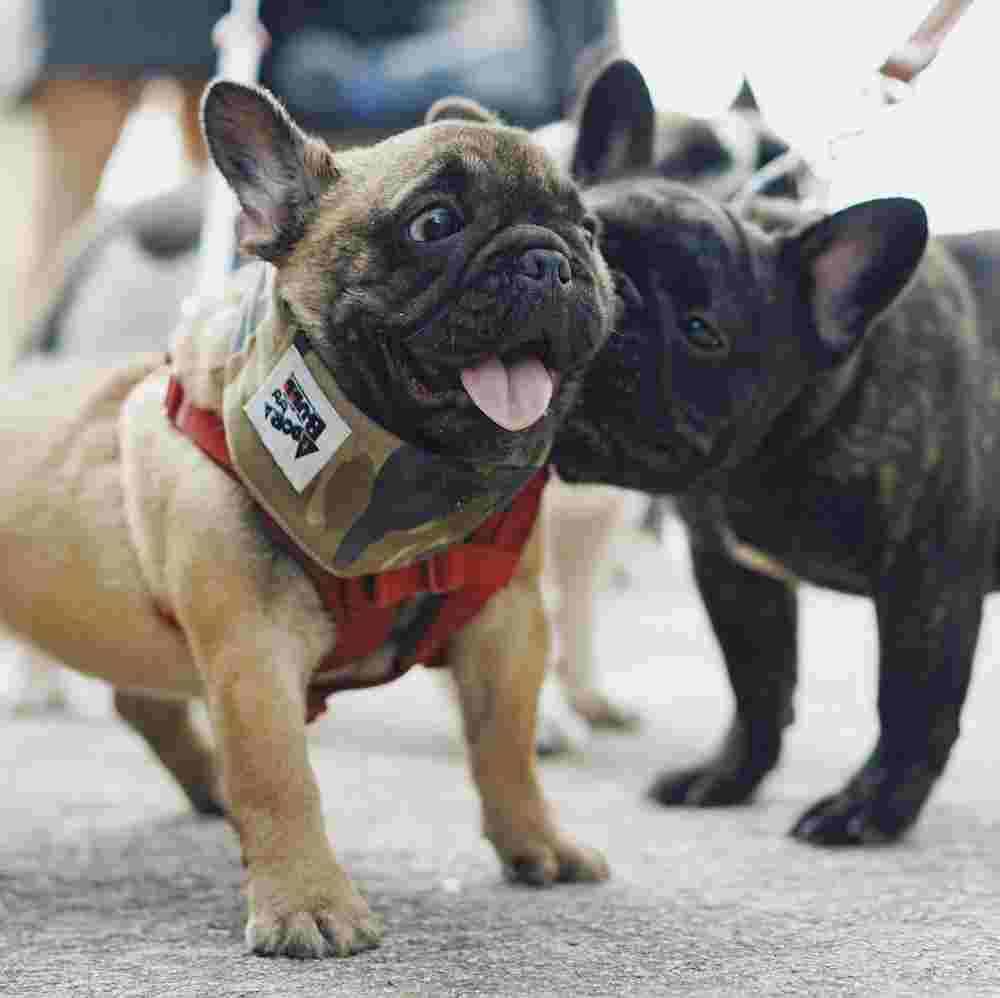
For dogs that are shy or reactive, one-on-one introductions can be more effective than overwhelming them with multiple dogs at once. Find a calm and well-socialized dog to introduce your pup to, preferably in a neutral environment where neither dog feels territorial.
Keep the initial meeting brief and positive, allowing them to sniff and interact at their own pace. Gradually increase the duration of these meetings as your dog becomes more comfortable. This method allows shy or anxious dogs to build trust and confidence in social situations without feeling overwhelmed.
Learn more about socializing your puppy.
Related Questions
Socializing your dog is important because it teaches them how to behave around other dogs and people. Dogs that haven’t had the opportunity to socialize may become fearful or aggressive toward other dogs or people.
You can tell that your dog is ready to socialize with other dogs when they are calm and relaxed around other dogs, show interest in other dogs, and do not display any signs of fear or aggression.
The best place to socialize your dog with other dogs is in a calm and controlled environment, like a dog park or a dog daycare. It’s important to supervise your dog at all times to ensure that everyone stays safe.
What should I do if my dog displays aggressive behavior toward other dogs?
If your dog displays aggressive behavior towards other dogs, remove them from the situation immediately. It’s important to seek the help of a professional dog trainer or behaviorist to work on their aggression issues.
Yes! Older dogs can still benefit from socializing with other dogs. In fact, some older dogs may become more reclusive as they age and socializing can help them stay active and engaged.
Learn more about dealing with dogs being aggressive to new dogs.
There’s no hard and fast rule on how often you should socialize your dog with other dogs, but it’s important to do it regularly. You can schedule playdates with other dog owners, visit a dog park, or enroll your dog in a daycare program. Choose whatever works best for you and your dog’s schedule!
Learn more about dogs barking when other dogs bark.
Conclusion
In conclusion, socializing your furry friend with other dogs is not only great for their physical health but also for their mental well-being. As social animals, dogs crave socialization and need to interact with their own kind.
With proper training and care, you can help your pooch develop better social skills and increase their confidence when meeting new doggy friends. So, let’s embrace the social butterfly within our furry friends and let them trot off to make new furry acquaintances!
